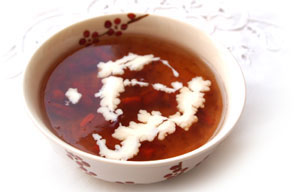
China's move to set up a target price system for farm products will stabilize domestic grain prices and encourage imports of products such as corn, soybeans and cotton, said industry experts.
The system will also raise the purchasing power of lower-income households when prices are high, while farmers will receive subsidies when prices fall too low, the National Development and Reform Commission said on its website on Friday.
According to this year's Number One Central Document, a guideline for agricultural development that's been issued by the central government for 11 consecutive years, China will modify its grain prices and allow farmers to get subsidies based on market price differences.
"The government is setting minimum prices for agricultural products and designating buyers for the harvest," said Li Guoxiang, deputy director of the rural development institute of the Chinese Academy of Social Sciences, a government think tank.
"Allowing the market to play a key role in the pricing of agricultural products can help boost the farm sector," Li said. "The country also wants to improve price subsidy mechanisms to ease the impact of higher prices on low-income consumers."
The NDRC said it will focus on pork, fertilizer, cotton, vegetable oil, sugar and other items with a "disproportionate impact" on low-income buyers. It chose a range of products and regions to carry out pilot reforms this year.
Changes in land productivity, combined with rapid urbanization, have had a negative impact on farm prices over the past three years, so it's time to set price targets while leaving room for farmers to make a profit, Li said.

2013 Chinese New Year |

Hidden dragons, crouching tigers |

Soap beans, silver ears and peach gum |

Special:Winter Solstice |

Wuhan noodles seek intangible status |

SW China county starts picking tea on day of spring's beginning |

Be my valentine |

Qingdao's snacks prepared for Spring Festival celebrations |